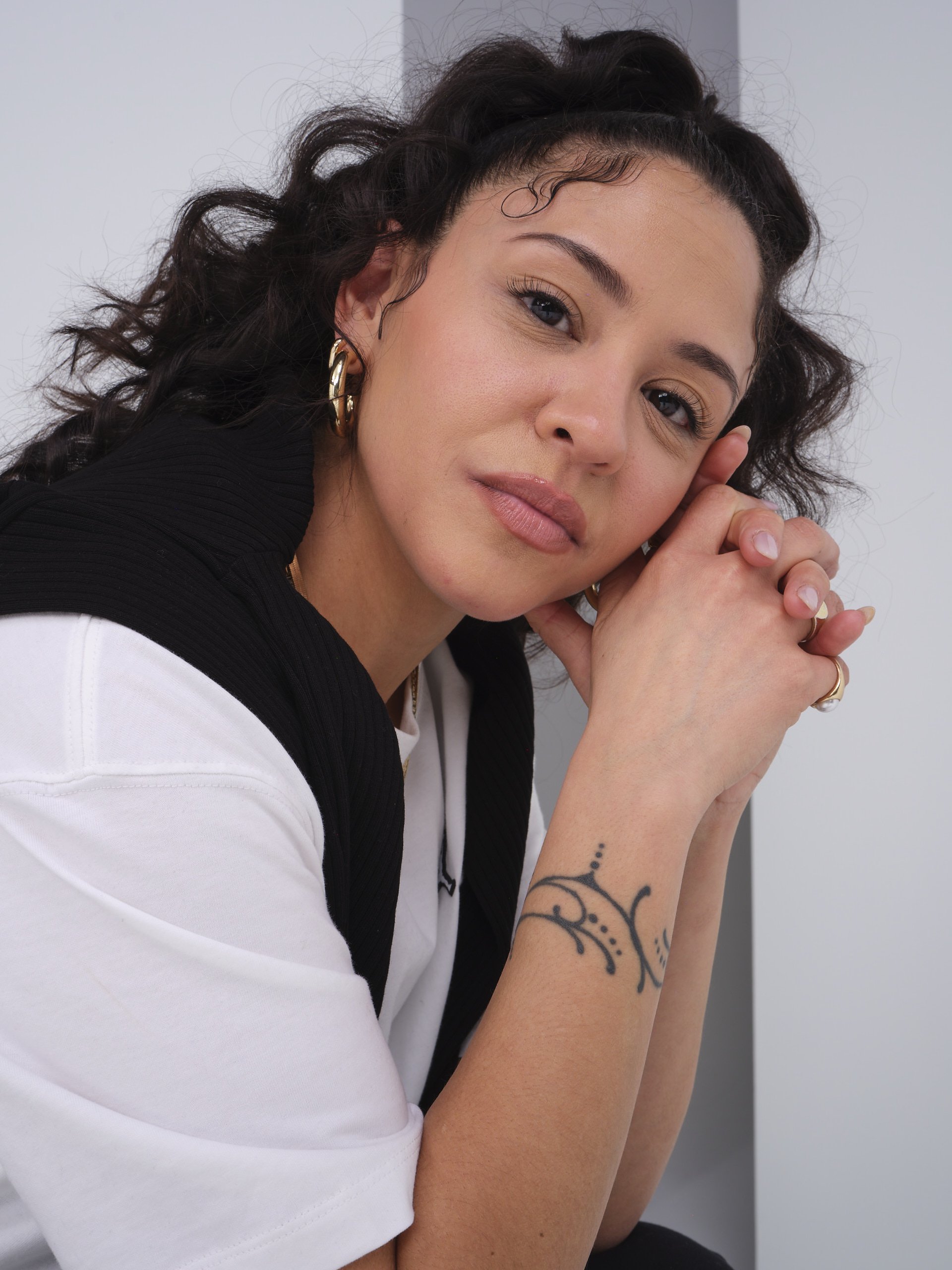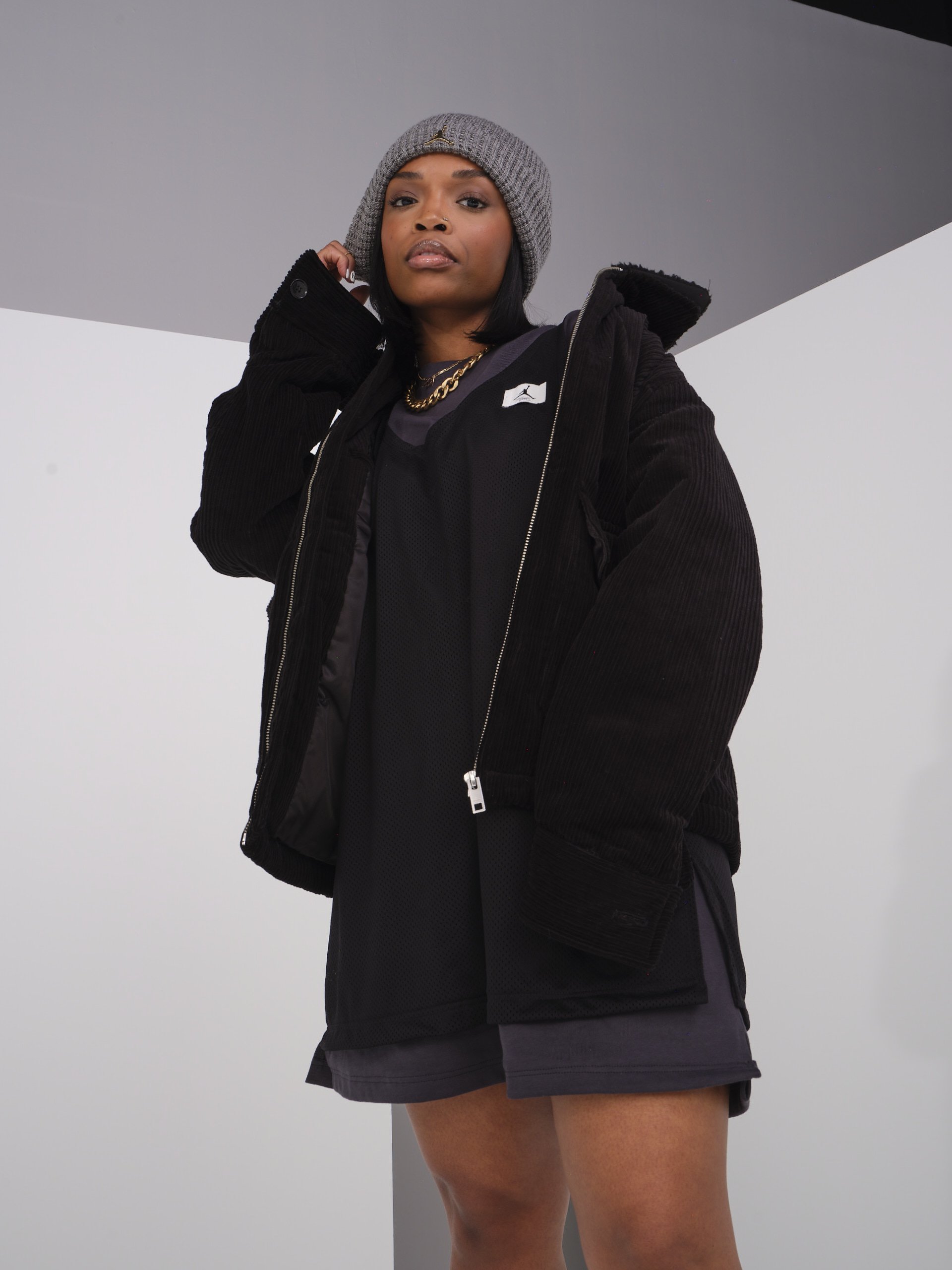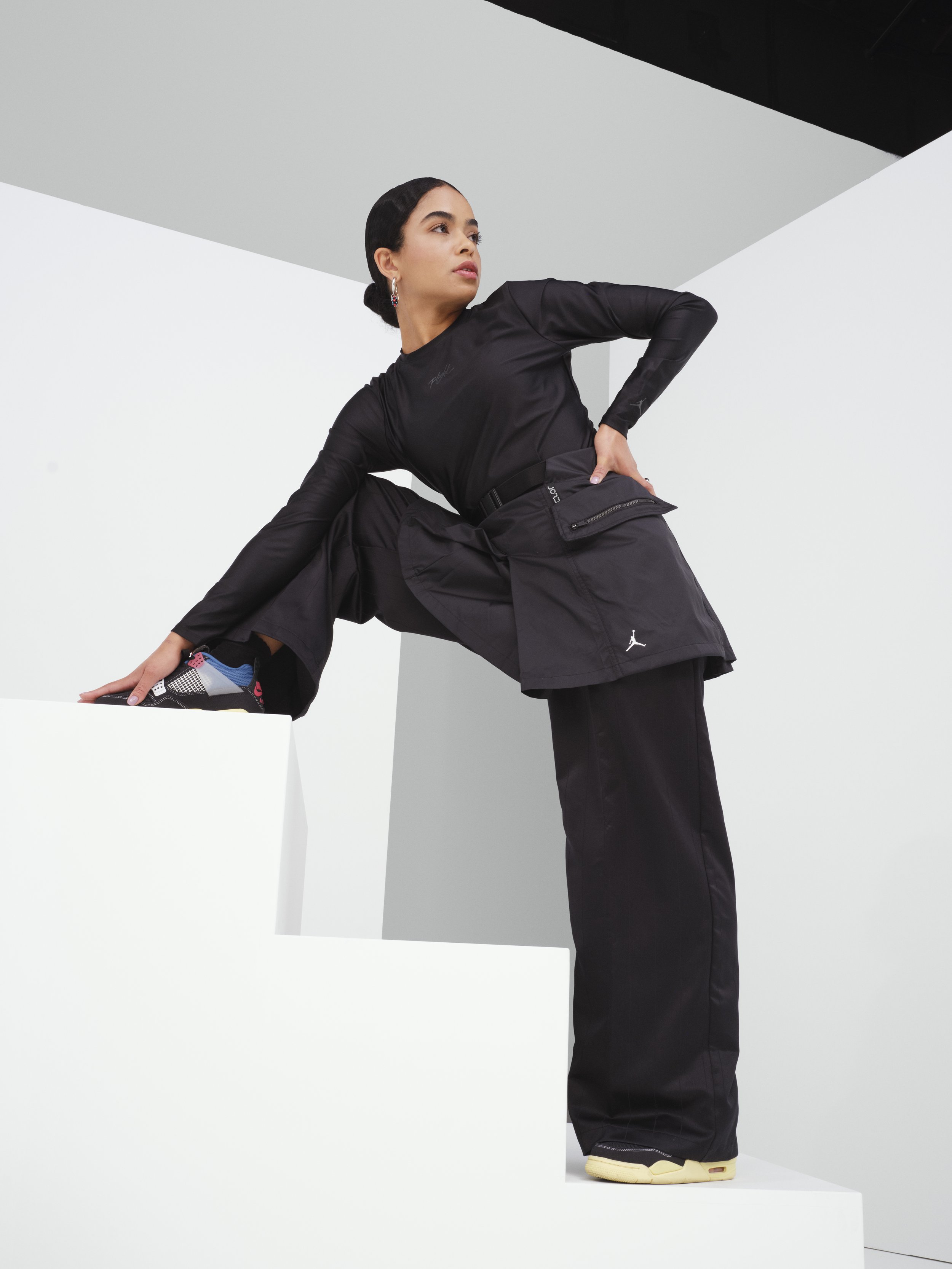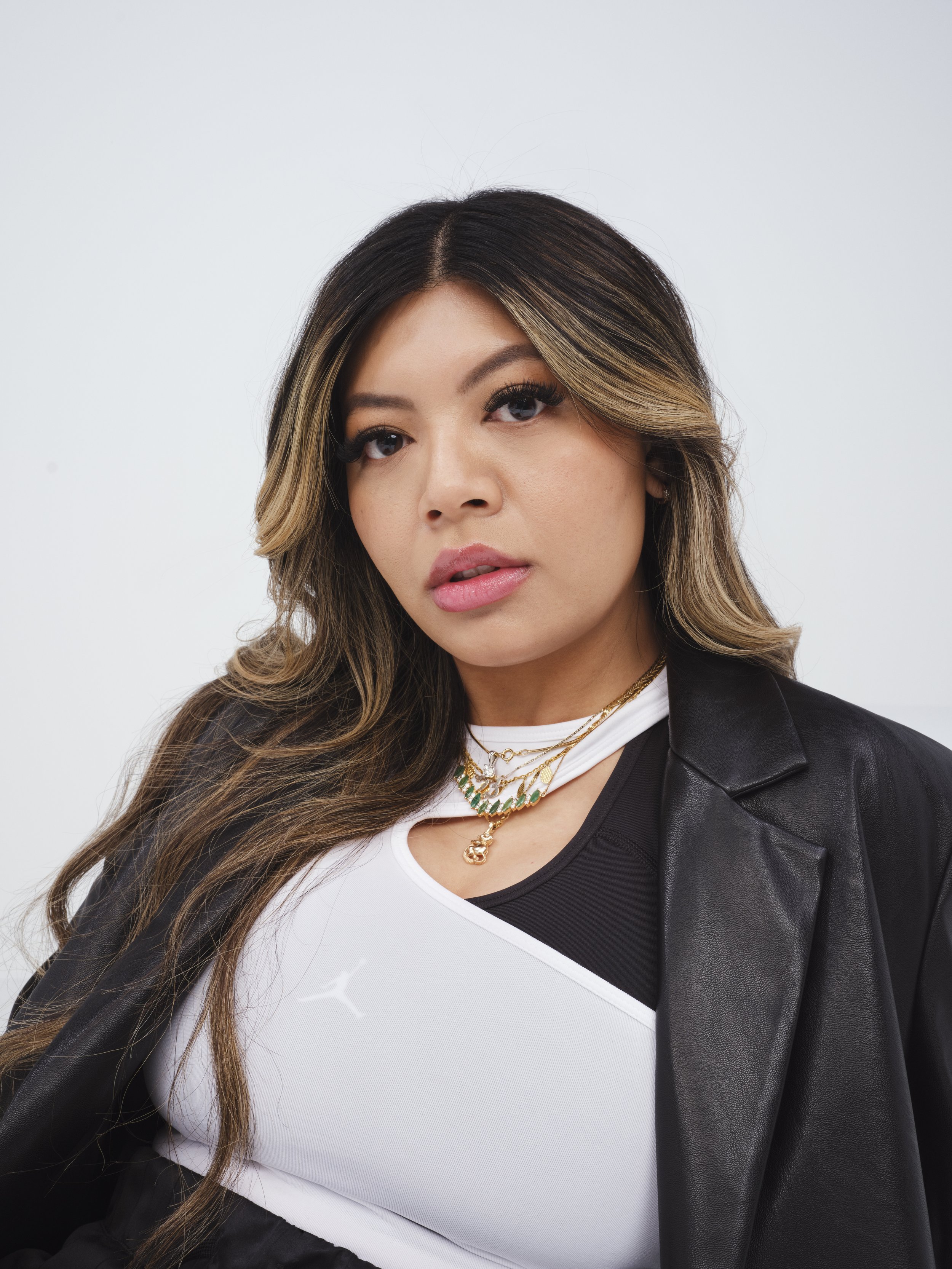Talking Sneak(HER) Culture With The Ladies of Jordan Women’s Collective
Photos: Dana Scruggs on behalf of Jordan Brand
In a continued push to make space for women of color and close the gender gap in creative fields, Jordan Brand handpicked 23 trailblazing women from across New York, Los Angeles and Chicago to participate in the Jordan Women’s Collective. This inaugural program, consisting of once-in-a-lifetime retreats, discussion panels, and workshops, brought together female creatives in powerful ways.
We got to sit down with some of the pioneering ladies from the Jordan Women’s Collective to discuss sneaker culture, their love for the Jumpman, and what inspires them to push creative boundaries every day. Below, New York City’s Annette Cruz, Chicago’s Emma McKee, Aja Johnson, Griz Preciado, and Los Angeles’ Alexis Quintero, Monica Kran, and Dimplez Ijeoma reminisced with us about their time with the collective, growing up in a male-dominated sneaker world, and the style obsessions they clung to as young sneakerheads.
ON BIG CITY SNEAKER CULTURE…
Emma McKee: Michael Jordan and the Chicago Bulls have an undeniable influence on sneaker culture [in Chicago], but I didn't grow up here. I moved here 11 years ago, and I grew up all over the midwest, and I also couldn't really afford cool sneakers like that. My first experience with sneakers, where it really influenced my style, was being an older teenager and seeing all these custom [Nike] Forces and SB’s. The customizing of the shoes, that was my thing. I always wanted something that looked different from what other people had.
Dimplez Ijeoma: I think in LA it's a little different. Like, in the sense where people dress you from the feet up. Your fit really is based off your footwear. Depending on what side of town you are, or depending on where you're from, people kind of address you by the traditional shoes that you have on. But with the democratization of the internet, we've been influenced a bit more by what people are doing in other cities. I just remember the early 2000s, and [how] everybody wanted to wear the shoes that Kobe and Shaq got on. Personally, I grew up in a Nigerian household. For starters, shoes [were] a form of function, and now, they're moreso a form of rebellion. I got my first pair of Jordans in ‘03. They were the Carmelo Anthony Jordan 12’s, and I got them because I was playing basketball. I was in high school, and he donated those shoes to our school. I remember being so hyped and I wore those damn shoes to the ground. I still own them. But I just remember that reframing the way that I cared for and loved on my shoes.
Monica Kran: I think growing up and going to flea markets and swapmeets with my Dad really inspired the way that I dressed. There was something about seeing clothes being sold on the street that made me more interested in finding authentic pieces. My grandmother influences me the most when it comes to sustainability and style, because that woman has pieces in her closet that she’s had from the 70’s. She gets creative with her clothes, and now when I buy something, I really think about how I can wear that item five different ways and if I’ll keep it ‘til I’m in my 90s. I express myself through what I wear and it starts from the feet up.
Aja Johnson: You know, growing up in the south side of Chicago, all you hear about is the Bulls, all you hear about is Mike, and everybody on the south side is wearing Jordans. Outside of that, for me, I grew up watching music videos, watching the [back up] dancers, and that’s directly in hip hop culture. I was just so into what they were wearing, like the baggy clothes, the spray-painted shirts, the sneakers they were wearing at the time. I would be watching Missy, Ciara, and Chris Brown, and they would always come with their own sense of style. I think they influenced me the most.
Alexis Quintero: I loved all the bright colors around my neighborhood, and the culture that I feel I wear every day. I love bright clothes, shoes, or items that pop. In the neighborhood I grew up in, Nikes and Jordans were the IT thing. I remember girls in middle school wearing them and it shaped my entire view on what the shoe means to me and many others. To think that I’m now an adult and a part of this Women’s Collective after loving the shoe for so many years is a true honor.
Annette Cruz: I spend a lot of my days meeting new people outside, a lot of my personal style comes from simply walking down the street. New York is known for its diverse community whether it be uptown or downtown, from old to young, the inspiration comes from all over. My love for the Jordan Brand really didn’t start until I went to high school in Yonkers. Aside from Michael Jordan himself (with Space Jam being one of my favorite movies of all time), those kids that wore Jordans every time they came out were the popular figures to me. Boys and girls would wear Jordans with anything they felt looked cool at the time. The guys I used to hang with taught me what being into sneakers was like and I soon enough built a love for the brand and started collecting for myself.
“There's so much work to be done. Now, I'm even more rooted in my commitment to go hard for women.”
Emma McKee, Chicago Cohort
Annette Cruz, NYC Cohort
ON The JORDAN WOMEN’S COLLECTIVE’S LASTING IMPACTS…
DI: The Jordan Women's Collective, for me, forced me to be way more intentional about the space and the time that I dedicate to giving back to women and empowering younger women. We've been able to do different activations, whether it be activating with Title IX and sitting with young women throughout the entire day at the YMCA in Crenshaw, and just empowering them to advocate for themselves, or giving them the methodologies of how to develop positive affirmations, or teaching them scripting and journaling, or even just helping and encouraging them to return back to sports. Being part of this cohort has made me be way more mindful and more intentional, about making sure in the same way that I show up and am present at work, I'm present in the community.
EM: It’s been inspiring in several different capacities. I was a sneakerhead before, but I know so much more about sneakers now. Part of my art practice has always been working with kids. I just did this big project with the WNBA which opened my eyes to the challenges that women in sports and women in streetwear face. Meeting the other girls, being around so many other women, and doing all this programming really drives home how much work there is to do in women-populated spaces, and how important it is for us to be doing these kinds of programming and this kind of activation work. And [the Collective] solidified that for me. I understood that it was important, but seeing it in real time, seeing the effect that it can have on kids, seeing how much we need each other's support, even going to like WNBA All Star with the Jordan women was a real eye opener. There's so, so, so much work to be done. Now, I'm even more rooted in my commitment to go hard for women and going hard especially for younger women, teenage girls, because they really need it and they really need us.
AC: The girls in the collective with me have made me more comfortable and open to working with children. Kids really are the future and I hope to continue to get the opportunity in showing them that you can accomplish anything if you set your mind to it and have fun while doing so. That’s something that I inspire my peers/following to do everyday. After going on the Jordan Woman’s Collective trip to Chicago, I’m excited for what the future holds for the WNBA. I feel as if the Jordan Brand is doing what they need to to get the recognition the deserve. Focusing on not only having the WNBA be as influential at the NBA, but putting them in the proper position to do so. Giving the WNBA their own sneaker collaborations, putting them front face of commercials, magazines etc. In due time, everyone will soon tap in and realize that they work just as hard and if not better than the NBA.
Griz Preciado: Being around all of these women inspires me to want to work more with other women that are outside of the collective. Working with youth has inspired me the most, because you see the impact that we give them. I just would have never seen myself working with kids so much… I love being around them, their energy is crazy and it inspires me to overall be a better person at the end of the day. Any little thing you do or say, they see that, and that's a big impact. You never know how you can impact one of their lives. This definitely has given me a big boost of inspiration, not just in my own artwork.
Griz Preciado and Aja Johnson, Chicago Cohort
ON THE EVOLVING LANDSCAPE OF WOMEN’S FOOTWEAR…
AJ: All of the collaborations that we're getting for women, they're releasing these shoes, and all in women’s sizing.Typically we would have to convert to [men’s] there. I think that's huge. [With] some of the sneaker pages that I follow on Instagram, I've been reading the comments, and I see a lot of guys when they're like ‘wow, the girls are getting the best colorways, the best drops, now I gotta try and get this shoe.’ I think that's dope, because that's something we would always have to worry about. I think that's a major, and that's gonna be really impactful going forward.
EM: Jordan does a good job with this; from the Aleali May’s, to the Nina Chanel's... I mean, it just makes it a lot easier to be fashionable in that stuff, stuff that communities that actually want to rep, like being able to wear Melody Ehsani. I like wearing her Jordans because I know they're hers. And it gives me another entry point [to sneakers] than maybe just sports.
MK: I’ve been a fan of Melody Ehsani since college, and she is a shapeshifter for women in streetwear – so seeing her put her brain into Jordan’s really does something to my soul. I feel like she gets it, and it’s a necessity to have anything from Melody in your closet. She does such a good job at putting the right amount of color and making the kicks wearable with any outfit. I think that Jordan’s done a really good job at evolving their sneakers with the younger generation. For example, I think the silhouette of the Jordan 1 Elevate is something that’s new, that will stick around for generations to come. The silhouette is simple, yet innovative and something that can make people feel powerful when they wear it because it has a platform.
DI: I'm gonna keep it stack with you: I feel like the female collaborations are better than the male collaborations. Let me explain. I saw grown men crying because they couldn't get their hands on Melody Ehsani’s Jordan 1 Mid. Even now, I think we're all waiting for Bephie’s collab to drop. Nina Chanel, Melody Ehsani, Aleali May, what Bephie is coming with… You're talking about four different women with four different approaches to style. I don't know. I'm excited. I think the girl collaborations are amazing. I just love that, we're hopefully getting more and more of them. The thing that I love that Jordan Brand is doing is that they're bringing women into all facets of the brand in general. Whether it’s the product space, or if we're talking about marketing, it's women through the entire process, because they're marketing to women and we know what we like, versus some random person named Bob who’s speaking to women through third person. It’s for us, by us.
AQ: I think [now] is such a different time than when I grew up. It’s amazing to see so many women being represented, getting sneaker collabs, and just being highlighted for all that they are. I know that means a lot and encourages this younger generation and shows them that anything is possible, because it also does the same for me. I love seeing the growth of the designers Jordan works with and how they really care and help them with the resources to grow. I love seeing diversity in all of the collabs and incorporating them into my everyday style.
“The thing that I love that Jordan Brand is doing is that they're bringing women into all facets of the brand.
It’s by us, for us.”
Dimplez Ijeoma, Los Angeles Cohort (right)
Alexis Quintero and Monica Kran, LA Cohort
ON CREATING THEIR OWN LEGACY…
GP: Being my authentic self, no matter what— no matter what room I enter. [Growing up] we had to be a certain way in a certain space, and ‘don't say this,’ ‘don't say that.’ But as I grew older, I realized ‘no, I'm gonna be my authentic self, and I don't really care who's in the room.’ If you don't like it, then… oh, well. That's who I am. And either you like it, or you don't. I've been real to myself and if I feel like it isn’t good for me, then I'm not doing it. Living with purpose and positivity.
AJ: The legacy I want to leave is just being a dope a** black woman. I think that's a figure that’s really necessary all over for our community, especially in the south side of Chicago. I'm directly influenced by women that look like me, so that's something that's really important for me.
MK: I would like for people to remember me as someone that helped people become the best version of themselves creatively. I want young Cambodian women to look at me and say, “ she did it, so can I.”
AC: I want people to remember the power I have to bring people together. I want people to feel inspired to open up and share ideas to build memories through a series of different events. I want my legacy to pass on and motivate others to build key moments filled with happiness and genuine love and connections, to continue to uplift and know that if I can do it being from New York, you can do it being from anywhere else in the world.
DI: Growing up, we thrived off of grind culture, right? Like, ‘you got to grind as you get XYZ, you gotta work’. I remember getting [to] this point in my life as a young adult, and being like, ‘the grind is not something I want anyone after me to have to inherit.’ Struggle is not something I want to ever leave as an American. There's certain things that I experienced growing up that I feel like should die with me. I don't feel like people beyond me should have to go through those things. Putting that in the context of this, my legacy would be not only leaving the world in a better space and how I found it, but letting whatever struggle culture that I came up with, end with me so that the people who come after me are set up to be even more successful than I could have imagined being.
AQ: I want to be known for living my truth, and for creating and showing other people, specifically young girls, that they can do anything they want to do and be anyone they want to be. I want to be kind, gentle, determined and persevere through anything. This is what I try to remind myself of every day, and what helps me create and live with a purpose.
ON PAVING THE WAY FOR YOUNGER GENERATIONS…
EM: I think seeing us is impactful. We all have such different styles, and looks, and things, but we're also like, real people. And you know, when I'm thinking of younger me looking at what people were wearing, and who's cool, I was never looking at myself. I think it may be really impactful for younger girls to see themselves actually being included in sneaker culture. You know what I mean? There's so much to be done, but I think us just even being here is helpful for it.
DI: Growing up, my mom would kind of yell at me for wearing sneakers with dresses. ‘No, you have to wear whatever, whatever, whatever.’ But now, we can do what we want. And I think modeling that for generations to come is the best way we [keep] moving forward. All of us [on this call] have different styles in the way that we refer to our Jordans, and the way that we move and operate throughout the world. What I'm always very mindful of is the hundreds of young women who are looking at us exist, knowing they can do it too. Like… that's tight to me.








